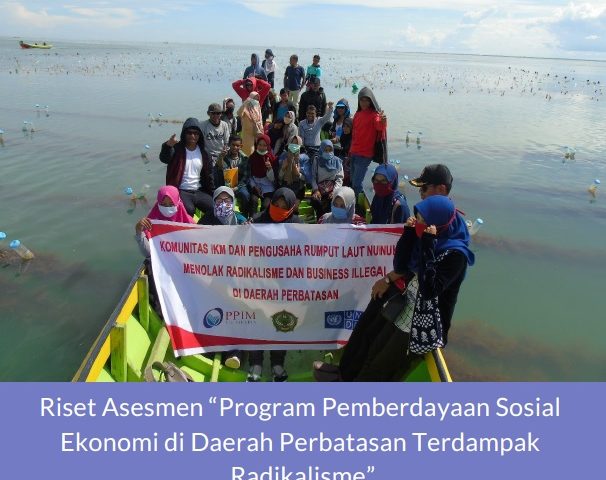Assessment on Existing Social and Economic Empowerment Programs in Extremist Dominated Border Areas

Assessment on Existing Economic Skills-Oriented Program for Youth in accordance to Counter Violent Extremism
February 26, 2019
Revitalization of Deradicalization Programs in Prisons
February 26, 2019Pertaining to the agenda of countering violent extremism, border areas poses unique challenges. Border areas often have different socio-economic problems from other areas. Illegal business, human trafficking, isolated communities, weak law enforcement, low education level, and poor health condition are common phenomenon among border societies.
As these areas secluded from decent religious moderation, economic stability, and low standard of education. Thus, border areas have become a very strategic arena for radical groups, extremists and even terrorists for cross-border weapon smuggling, cadres smuggling, expanding ideology, and violent extremism. The landscapes provide a lot of inland and sea routes that serve as traffic routes for people and goods between countries which has existed for a long time and spread at various points thus hard to be monitored.
This is especially the case in Indonesia. According to Sangihe police report, Anthony Salim used the border route in 2002 to smuggle his followers and weapons from and to the Philippines. In Nunukan, Reza Nurjamil, a member of Anshrat Daulah group from Tasikmalaya, was arrested in 2017 due to his activities with the ISIS movement. In Batam, the police arrested several perpetrators of terrorism acts from West Sumatera in 2017. These plights are evidence to the notion that radical and terrorist groups have been taking advantage of demographic and geographic situation of border areas.
Socio-economic empowerment program that involves capacity building activities to increase socio-economi skills and local economic independence believed to be an effective method in reducing violent extremism in border areas. The government has actually been trying to strengthen remote areas and villages as their commitment to develop Indonesia from the outskirt areas. Yet instead of supporting socio-economic programs to increase the prosperity of citizens, the government still only focus on the development of national infrastructure as the main priority.
Hence, in cooperation with the Institute for Research and Community Services (Lembaga Penelitian dan Pengabdian Masyarakat/ LP2M) Manado State Islamic Institute, CONVEY Indonesia sees the urgency for a socio-economic program assessment in border areas and implement intervention based on the evidence-based best practice in order to counter radicalism and terrorism in border areas. The research assessment focused to explore on the impacts of socio-economic empowerment program implementations in border areas which exposed to radicalism.
The research program also advocate some strategic policy recommendations, specifically to the Ministry of Manpower and the Ministry of Social Affairs. Its policy brief as written in Bahasa can be accessed here, or the English version in here.




